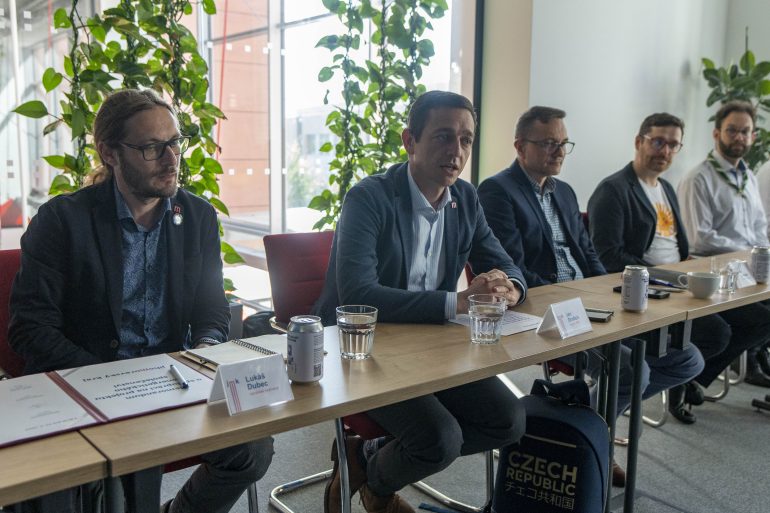Yesterday morning, South Moravian Governor Jan Grolich signed a memorandum of cooperation on an energy community project to coordinate the use of sustainable energy sources, together with representatives of companies, civic associations and citizens.
The energy community concept aims to enable the sharing of electricity between regional hospitals, schools and social facilities, as well as citizens, companies or non-profit organisations.
The companies and associations that are participating in the creation of the energy community are innovators in the field of decentralised energy production. They include Sonnentor, a company producing organic herbal products and teas, which has built large photovoltaic power plants on its premises. Although the factory can consume a significant amount of energy, it is able to share the excess energy with other members of the community at certain times.
Under this perspective, the South Moravian Innovation Centre (JIC) is supporting several start-up companies that are working on systems for managing production and energy consumption in the community. The non-profit sector is represented by the Kaprálův mlýn Scout Center, which has an ecological education centre located in its building, aiming to promote the idea of community energy to the wider public.
“The main purpose of creating an energy community is the greater use of energy from renewable sources,” said Grolich. “As an example, Sonnentor could produce ‘surplus’ energy thanks to the photovoltaics in their production halls, which it will then be possible to share with citizens who do not have the opportunity to purchase solar panels for their own homes. Another advantage is a greater reward for shared energy than when it is sold to the grid – within the community, each photovoltaic owner saves both as a producer of energy and as a consumer.”
The South Moravian region is the first region in the Czech Republic to take steps towards the creation of an energy community. At the same time, in the future, in addition to the production of electricity from photovoltaics, the grid will also enable the sharing of electricity produced from wind power plants or biogas stations.

“By 2031, we would like to significantly support the construction of wind power plants in the region,” added Lukáš Dubec, deputy governor for the environment. “According to the expert assessment of the Czech Academy of Sciences, South Moravia has a huge potential for the use of wind energy, which we are not yet using sufficiently. That should change.”
Petr Chládek, director of JIC, underlined the economic potential of the project: “This is a great opportunity for our startups and innovative companies. I believe that the project can function as a laboratory in which our clients will have space to test their products. Thanks to this, they will gain a competitive advantage, which will then help them succeed in foreign markets as well. The energy sector is extremely dynamic and offers interesting opportunities for companies from our region as well,” he stated.
The energy community project is being coordinated by the regional company CEJIZA, which is responsible for energy purchases and energy management for all regional facilities. In January 2024, it applied for a subsidy from the Czech Ministry of the Environment for the establishment of the pilot energy community.
“At the time of its creation, the region was also inspired by foreign experiences and established cooperation with the federal states of Lower Austria and Burgenland in the field of community energy,” explained Aleš Krč, energy manager of the South Moravian region for CEJIZA. “Examples of functional communities abroad are a guarantee that our project will also be beneficial for citizens and companies in the South Moravian Region. There’s still a lot of work to do and setting up the sharing rules, but we’re not afraid of that. We anticipate the ‘sharp’ operation of the energy community at the turn of 2024/2025, and we believe that it will usher in lower electricity prices and the development of other renewable sources.”






